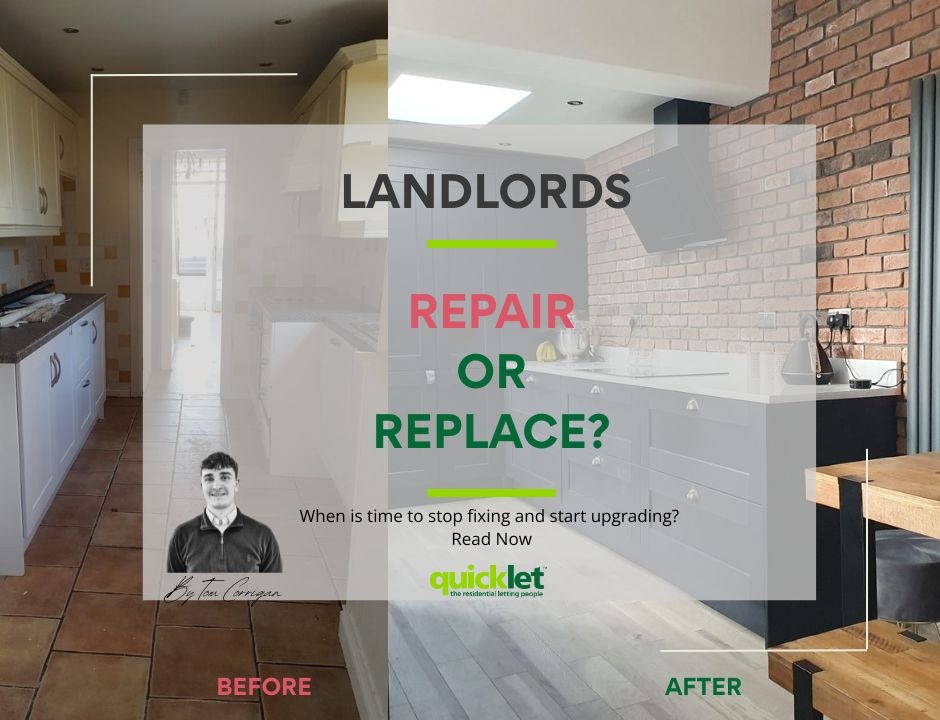
As a landlord, one of the most common dilemmas you’ll face is deciding whether to fix an existing feature or invest in an upgrade. While quick fixes may seem cheaper in the short term, strategic upgrades can boost rental income, tenant satisfaction, and even property value.
In this article, we break down the key indicators for when it’s time to upgrade versus when a repair will suffice and the potential benefits of making the right call.
1. The Lifespan Factor: Know Your Fixtures and Fittings
Every component of a rental property has a typical lifespan. For example:
- Boilers: 10-15 years
- Carpets: 5-7 years
- Kitchens/Bathrooms: 10-20 years depending on quality
- Appliances: 8-12 years
If a feature is nearing or past its lifespan, it’s often more cost-effective to upgrade than to repeatedly patch things up.
2. Repair Costs vs Upgrade ROI
Ask yourself:
- Are you spending more than 50% of the replacement cost on frequent repairs?
- Will an upgrade allow you to increase rent or attract better tenants?
For example, upgrading to energy-efficient appliances might cost more upfront, but could reduce tenant utility bills, increasing property appeal.
3. Tenant Expectations and Market Trends
Modern renters expect properties that are:
- Energy efficient
- Aesthetically appealing
- Functional and safe
If your property lags behind local market standards, an upgrade may not only help you compete but allow you to charge premium rent.
👉 Tip: Stay informed with local letting agents (like Quicklet!) to know what features are in demand.
4. Compliance and Safety Regulations
Upgrades may be mandatory if:
- Your property no longer meets current safety standards
- Over the past few months, a number of new legislative changes have come into force that may affect the need to upgrade. The introduction of mandatory safety checks in NI under new legislation may impact the need to upgrade.
- You need to comply with electrical safety (EICR) or fire safety regulations
In these cases, upgrading isn’t just a smart choice, it’s a legal one.
5. The Hidden Costs of Frequent Fixes
While a quick fix might seem like a budget-friendly choice, repeated call-outs and minor repairs can quickly add up, both in terms of money and tenant frustration.
Long-term benefits of upgrading:
- Fewer emergency repairs
- Higher tenant retention
- Better reviews and word-of-mouth
- Reduced void periods
6. When It Makes Sense to Repair
Not every issue demands a replacement. Opt to repair when:
- The issue is isolated and not recurring
- The component is well within its expected lifespan
- The fix is quick, safe, and inexpensive
- You're preparing to sell and don’t want to over-invest
Conclusion: Take the Long View
Smart property management is about balancing short-term costs with long-term gains. While fixing may be suitable for small, isolated issues, investing in thoughtful upgrades can lead to increased rental yield, happier tenants, and lower maintenance costs over time.
Need help evaluating your property’s upgrade potential?
📞 Contact Quicklet today for expert landlord support, market advice, and property management solutions tailored to your goals.





